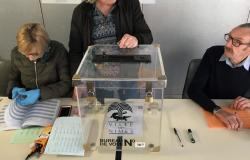Launched on May 13 in Dunkirk, the Multipurpose Maritime Operation represents an “important turning point” for maritime cooperation along the coasts of the Channel and the North Sea, indicates the Channel Maritime Prefecture and the North Sea. It is, with the Belgian authorities and the European agencies EMSA (European Maritime Safety Agency) and EFCA (European Fisheries Control Agency), a stakeholder in this MMO, which must last until mid-September, “mainly off the coasts of Boulonnais and Calaisis”.
As its name suggests, this cooperation must meet several objectives: strengthening maritime security; detect, identify and classify devices floating or resting on the seabed and which may represent a danger to navigation; fight against maritime pollution in an area where the risk is high; strengthen fisheries policing systems…
Additional means
As part of this MMO, the European agencies of the EFCA and EMSA provide the French and Belgian authorities with resources complementary to those they already have, in order to respond to specific operational needs. “A surface and underwater ROV (Remotely Operated Vehicle) will be made available to the Channel clearance divers group based in Cherbourg,” specifies the Channel and North Sea Maritime Prefecture, as well as a Camcopter S-100 rotary wing aerial drone, “made available to the CROSS teams in Gris Nez to strengthen the aerial monitoring capabilities of sea rescue operations carried out in Pas-de-Calais”.
This EMSA drone was also part of the means used as part of the Pol’Nord exercise, set up by the maritime prefecture with the prefectural authorities of Hauts-de-France, the Belgian maritime authorities and the ‘EMSA. And this, as part of a major “assistance to ship in difficulty and fight against pollution at sea” training which took place off the coast of Dunkirk the day after the launch of the MMO.
A first successful test
For 48 hours, on Tuesday May 14 and Wednesday May 15, more than ten intervention vessels, several air assets and more than 300 people trained to deal with this fictitious event (accidental collision between a container ship and an oil tanker a few kilometers off the port of Dunkirk), integrating actions to combat maritime pollution and its consequences on the Dunkirk coast. At the end of the exercise, the maritime prefecture of the Channel and the North Sea welcomed the “good level of coordination of the actors in the management of this type of particularly complex crisis. Field adjustments and the interoperability of resources could be tested calmly but realistically.”
Finally, she considers that this type of training “makes it possible to refine the procedures shared between the different actors and to prepare them to face any major maritime event which could appear in an area where 25% of global maritime traffic transits”. And this in a very narrow geographical area, “where any event occurring at sea can very quickly have considerable consequences on land”.
© An article from the editorial staff of Mer et Marine. Reproduction prohibited without consent of the author(s).






